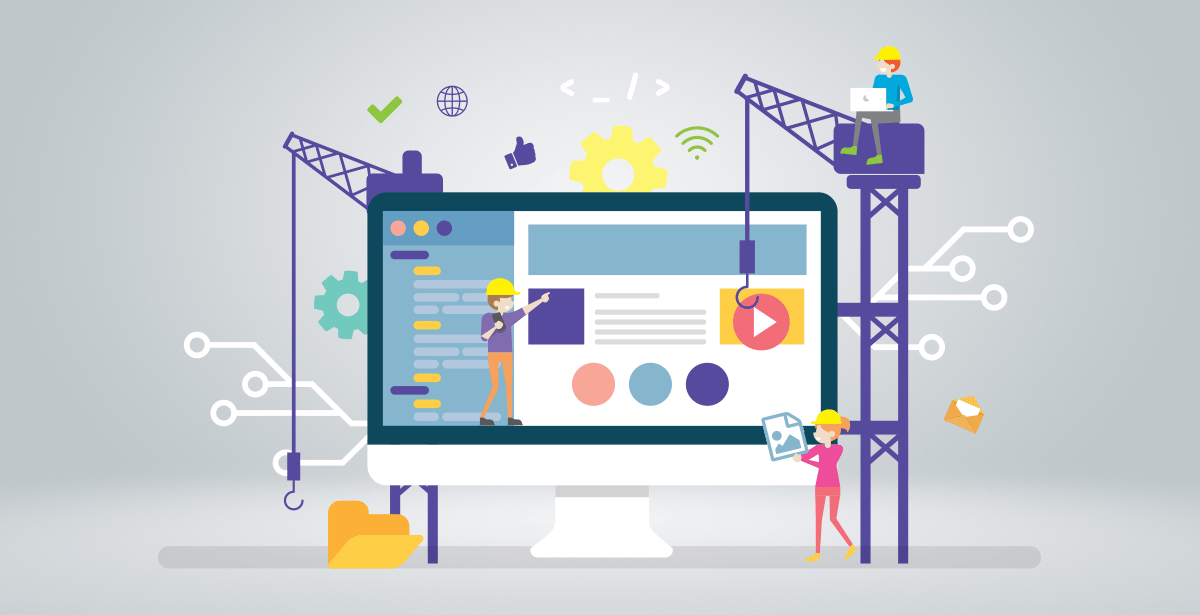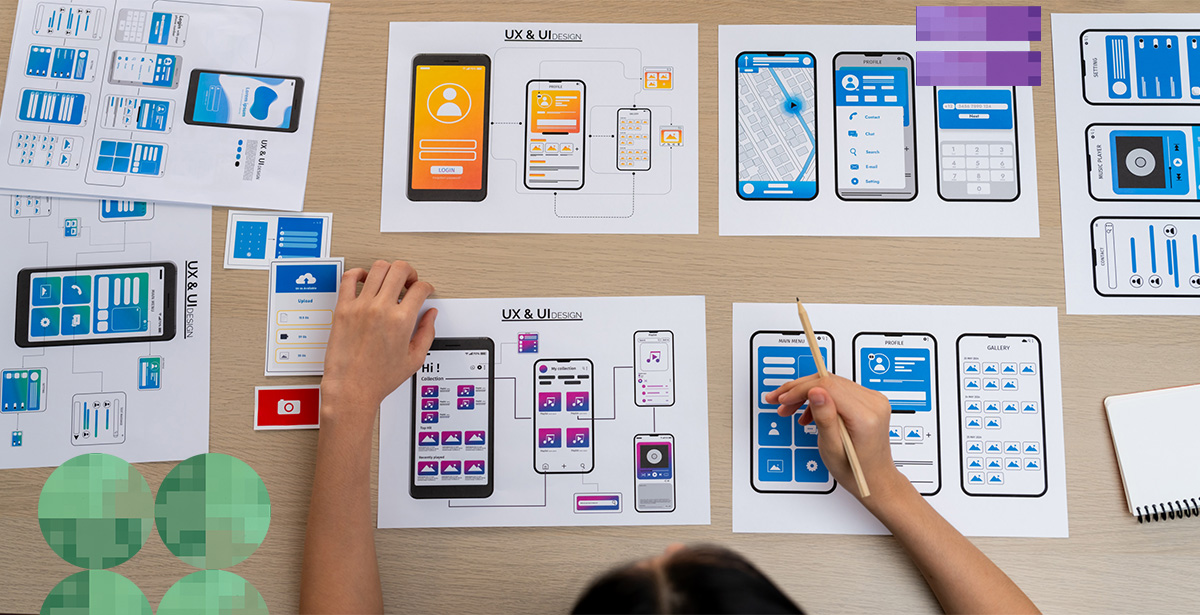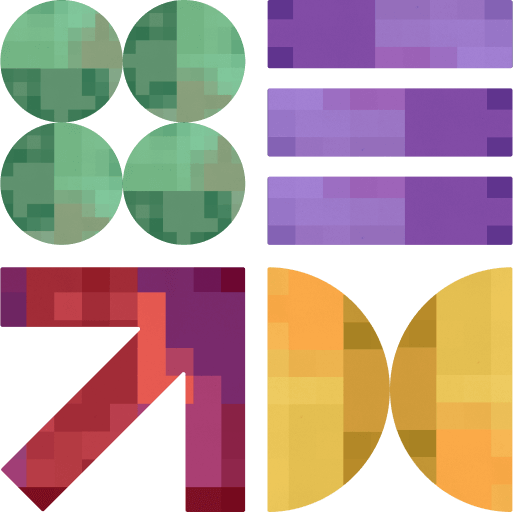3 Facts to Know Before Hiring Website Development Services

IT professionals, especially those providing website development services, are bound to be asked, “Can you build a website for me?”
Don’t be fooled by the simplicity of this question. This is perhaps the most difficult question faced by any IT professional.
While building a website isn’t rocket science, figuring out what is actually required feels that way. Especially as most entrepreneurs and businesses are still not fully aware of what they want or the process that follows.
Take WordPress for instance. The same CMS that enables a person to set up a blog for free in a few minutes is also powering the White House website along with dozens of its other services.
By entrusting your project to DPL’s web and app developers, we’ll guide you to get maximum value for your business.
However, if you wish to do your research before getting your own web solution, there are three things to know.
1) There Are Multiple Types of Websites
Before opting for custom website development, you should have the type of website you need in mind. Websites come in different forms, including but not limited to the following.
eCommerce Websites
eCommerce, or electronic commerce websites, are websites where the sale transactions for products and services are made on the internet. Such sites are more complex than traditional websites as they require different functionality, expertise, and management and maintenance.
In addition to offering convenience to your clientele, an eCommerce website can help with the following in the long run.
- eCommerce websites ensure the availability of your products and services round the clock. This, in turn, helps generate more sales.
- The sites can easily be integrated with other systems such as your inventory management system. This will give you more insight into what sells and help you adjust your stock to customers’ needs.
- Retail businesses can grow quicker and more economically through eCommerce websites. In fact, early sales profits will quickly pay off the initial investment.
Web Applications
A web app is an application program that’s stored on a remote server and accessible through any web browser. Its frontend is created using languages such as HTML or CSS, while the backend uses a programming sack like MEAN or LAMP.
The popularity of web apps grew with the advent of Software as a Service (SaaS). They continue to be used for the following reasons.
- They’re easier to maintain than desktop applications as they use the same code throughout the application.
- There are no compatibility issues as they support modern browsers rather than platforms.
- Rolling out web apps is easier because they don’t require mobile app store approval.
- The apps are accessible by both computes and mobile devices, and don’t require download or installation.
Web Dashboards
A web dashboard is an online interface or page in a website that displays real-time data in the form of charts and reports. You can use this visual report to track different metrics related to your business. Therefore, they’re considered a necessity for decision-makers.
Here are some more benefits to getting web dashboards for your business.
- A web dashboard will pull data from different sources and display important information in a single view. This makes it easier to detect patterns and KPIs.
- This dashboard can easily be customized based on user needs. Therefore, all functions across the organization can use it as a central source of information.
- The visual representation can help audiences absorb information faster. It especially helps highlight data that matters at first glance.
- Web dashboards are accessible anywhere via an internet connection. They don’t require downloads or the installation of additional software.
Web Platforms
The term “web platform” is an umbrella term which refers to a collection of technologies. This Web 2.0 concept can combine different tools such as a customer relationship management (CRM) tool, eCommunications, and even an eCommerce store.
So, what makes using web platforms a great choice? Here are some benefits.
- Web platforms used expressed data capture. Businesses can learn about authenticated users through
multiple touch points. - Engagement levels on web platforms are higher as they offer a two-way conversation.
- Web platforms can turn users into loyal customers and even transform them into brand ambassadors. This is possible as this type of websites provides a personal connection between businesses and their audiences.
Brand Portfolios
A portfolio website is exactly what it sounds like. It’s an online resource that allows creatives and businesses alike to display examples of their work. It highlights skills that can impress clients, customers, and even potential employees.
This type of website will benefit you if you wish to do the following.
- You can showcase products and services visually to inspire potential clients to choose your business.
- While the focus is more on visual components, you still get to describe who you are and what you do. Therefore, you can communicate these important details without overwhelming visitors.
Integrated Web Solutions
Integrated web solutions are the most complex type of web solutions. They combine mobile apps and other third-party services to enable certain functionalities.
In addition to establishing your presence online, an integrated web solution offers several advantages.
- Depending on required integrations, this web solution can be used to streamline customers’ queries and transactions. This, in turn, provides them with better experience and elevates their satisfaction levels.
- Integrated services can generate time savings by automating several aspects of your business.
- Due to automation, you can reduce staff overheads or utilize their skills in areas that add to your bottom line.
2) Nothing Tops Agile Web Development Services
This may sound biased considering DPL is an Agile IT company. However, Agile web development is a must for great results, within the time frame you set.
Inspired by the Agile Manifesto, Agile web development is an alternative to traditional web development. It entails breaking a website project into smaller chunks.
Developers would then work and roll out each chunk to the live environment. This has proven to be more effective than waiting for an entire project and releasing it at once.
Other benefits you can expect by choosing this method are –
- Team-Client Transparency – Clients are fully involved in every stage of the project. This results in a healthy environment throughout the project.
- Faster Launch Time – In comparison with traditional methods, Agile web development can produce websites quicker. The gradual development enables problems to be fixed while the product is in use. Moreover, there’s more room for thorough testing.
- Higher Quality – With regular testing, the chances of high-quality output are almost guaranteed. We also get to meet the standards of clients and ensure their satisfaction.
- Reduced Risk – The likelihood of a project failing is usually low. This is because clients can monitor their investment and can provide their input to get the full value.
- Cost Efficiency and Faster ROI – You get more visibility into what each chunk of the project will cost you. This allows you to cut back where necessary to reduce the overall cost. In turn, you get more money to achieve goals such as more brand exposure via PPC and organic SEO.
At DPL, we follow a fairly standard process for our website development services. This is further tweaked according to the available resources at hand, our expertise, and/or tech stack a client requests.
3) There Are Components of a Web Solution You Should Consider
In addition to design and content, you need to decide on the components that go into your web solution. These include but aren’t limited to the components below.
Website Hosting
Web hosting is a collection of services offered by third parties to support publishing websites online. They cover the storage and delivery of website files, content, etc. to an internet browser.
Web hosting is available in different forms. Each of these comes with unique advantages and disadvantages. For example, free web hosting saves you money, but can leave your solution susceptible to cyberattacks.
Therefore, it’s essential that you understand its types and other important details before investing in this component.
Website Domain
The domain is the unique, custom address for a website. This comprises of two parts: the name and the extension. For instance, look up to the address bar. The name in this domain is “dplit” whereas the extension is “.com.”
With a strong domain name, your business gets to enjoy several advantages such as –
- Added credibility to the business
- More visibility to the brand
- Increased search engine ranking
- Choice between global and local marketability
Tech Stack
A tech stack is one of the components that ensure your project’s cost-efficiency and success. It’s the set of tools, programming languages, and tech used for building any solution.
The tech stack is further divided into two components: the frontend stack and the backend stack.
The frontend stack is the client’s side of the web solution, i.e. everything you see on the screen. This is further divided into HTML, CSS, and JavaScript. Through these, web developers can define the appearance, functionality, and interactive nature of your web solution.
Meanwhile, the backend tech stack refers to the inner workings of the web solution. It includes programming languages, frameworks, web servers, and databases.
In addition to these, you need to consider tech stack models such as LAMP, MEAN, or MERN. Don’t worry; we usually guide our clients on these.
In fact, DPL will always focus on delivering value by providing UX services, advanced features, and cost-effective services. That way, your web solution can help you best achieve your business goals.
Need to Know More About Our Website Development Services?
We’re here to guide you and answer any questions you may have on our web app development services. So, get in touch with us in the form below.





